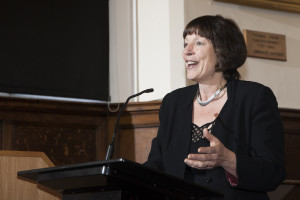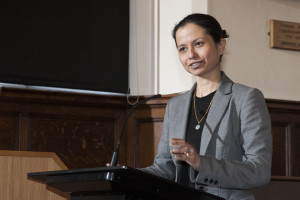I transferred my PhD to the University of Surrey part way through my second year, having previously been (quite literally) a “remote” student at the University of Exeter, based at the University of Wales Trinity Saint David in Lampeter. Whilst still in Wales, I had begun to plan a symposium, not realising then that I would soon be moving. Treating me as one of their PhD students, the English department at Lampeter had kindly allowed me to do some teaching, and when TSD’s Institute of Sustainable Practice, Innovation and Resource Effectiveness (INSPIRE) decided to bring “sustainability” into the university at curricula level—my research area being environmental literary criticism—I was called upon, along with part-time research fellow at the university, Dr Mathew Jarvis, to support the English level two module “Research Methods and Sustainability.” Sitting down to plan things, we soon realised that not only did we represent the only expertise in this area within the department, but there was very little sufficiently relevant published material to put forward for the module.
Although Environmental Literary Studies is gaining momentum within the UK, “sustainability” seems not to feature a great deal specifically. This set us thinking. Being on the executive board of ASLE-UKI (the Association for the Study of Literature and the Environment, in UK and Ireland) I happened to be aware that ASLE-UKI was interested in putting on some select symposia. Putting two and two together, I initiated conversations, the outcome being that director of INSPIRE and former Wales Minister for Environment and Sustainability, Jane Davidson, agreed to support an ASLE-UKI symposium at Lampeter in March 2013, with myself and Matthew Jarvis as organisers. The symposium posed the question: “How might literary scholarship engage with the sustainability debate?” Our programme included two keynote speakers, Professor Claire Colebrook of Penn State University USA, and Chair of ASLE-UKI and Reader in English at Surrey, Dr Adeline Johns-Putra, plus sixteen presentations by scholars from the UK and Ireland, the USA, and as far afield as South Africa. Co-organiser Matthew Jarvis and I are currently about to embark on co-editing a special issue on literature and sustainability in ASLE-UKI’s scholarly journal Green Letters, for which we will select proceedings from the symposium.
Having previously worked in the organic food industry, I’m no stranger to organising events, and would say that organising, say, a product launch involves skills that are transferrable to symposium organising (and assumedly vice versa). It’s all about communicating with people, getting across ideas and a vision, and indeed having a vision in the first place (not to mention determination). What I’ve particularly enjoyed is the momentum that has carried this forward, along with the support and enthusiasm of everyone involved. The support has been invaluable, especially since—having transferred to Surrey soon after coming up with the idea—the whole event was organised from a distance. It has been very difficult at times, but some useful connections along with the potential for future collaborations have been forged, linking English and Languages at Surrey and INSPIRE at University of Wales Trinity Saint David. There are already two further outcomes from the same set of discussions. One is that Dr Jarvis and I are now also working on an edited volume on literature and sustainability; the second is that INSPIRE, this time supported by ASLE-UKI, also organised an additional event: a public lecture competition on literature and sustainability. The winning lecture will be delivered at the Hay Festival of Literature and the Arts 2013 (more on that soon…).

Jane Davidson, director of INSPIRE at the University of Wales Trinity Saint David, speaking at the Lampeter symposium.


Pingback: The 2013 INSPIRE Lecture: Literature and Sustainability at the Hay Festival | Surrey English Blog